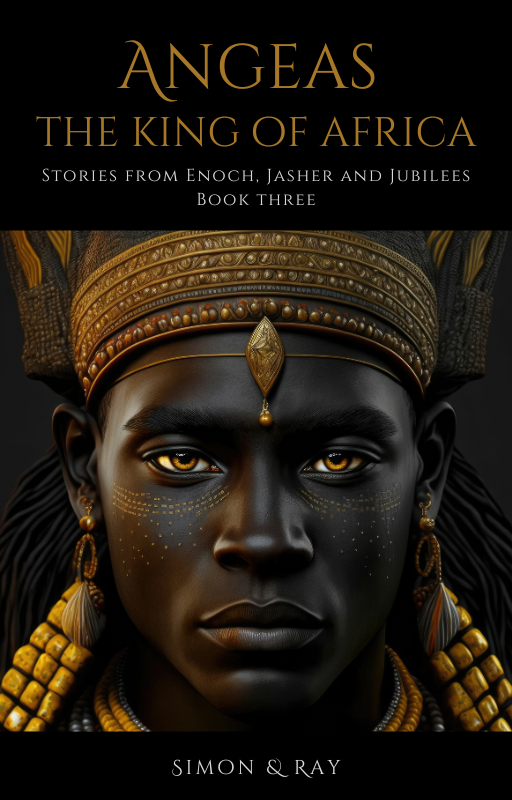
Angeas, the King of Africa: Stories From Enoch, Jasher and Jubilees Book Three
The mention of the name Africa in ancient scripture seems almost mythical. In discussions of early texts, many Africans resonate more with the name Alkebulan than Africa, believing that the latter is not represented in sacred or historical records. Yet the Book of Jasher—a text referred to in the Bible but often overlooked in popular scripture narrates Africa’s presence in ancient history.
The Book of Jasher mentions several kings from Africa, underscoring the region's historical significance in biblical narratives. Among these African rulers are Angeas, Bela, Azdrubal, and Anibal, all associated with events surrounding Egypt, Edom, Chittim (ancient Italy), and their conflicts. These figures not only offer insight into the geopolitics of the ancient world but also provide a fascinating link between the biblical record and African history, suggesting that Africa played an important role in shaping biblical events.
King Bela is directly mentioned in the Bible in Genesis 36:32 and 1 Chronicles 1:43, where he is described as the first king of Edom. Genesis 36:32 states:
“Bela the son of Beor reigned in Edom, and the name of his city was Dinhabah.”
In the context of Jasher, Bela is mentioned as a king who comes from Africa. Africa is also referred to as Dinhabah and it is possible that he took the name with him to Edom.
Anibal, or Hannibal, the son of Angeas, mentioned in the Book of Jasher, presents an interesting parallel to the famous Carthaginian general Hannibal Barca, known from Roman history. Hannibal is celebrated for leading a daring campaign against Rome during the Second Punic War, crossing the Alps with war elephants and inflicting major defeats upon the Romans. His military genius is recognized as one of the greatest in history.
Central to this ancient world of shifting powers and alliances is the age-old struggle between Esau and Jacob, twin brothers whose destinies divided from birth. Their initial battle for birthright and blessing transcended their own lives, cascading down through their descendants. As tensions between the lineages of Esau and Jacob simmer and escalate, nations far and wide are drawn into their discord. The children of Esau and Jacob wage relentless wars, and their conflicts reverberate across borders, ensnaring mighty nations in their wake.
But history is a canvas painted by the victors, where dates are brushstrokes and colors bleed with their triumphs—who can say what truths lie beneath the surface?
